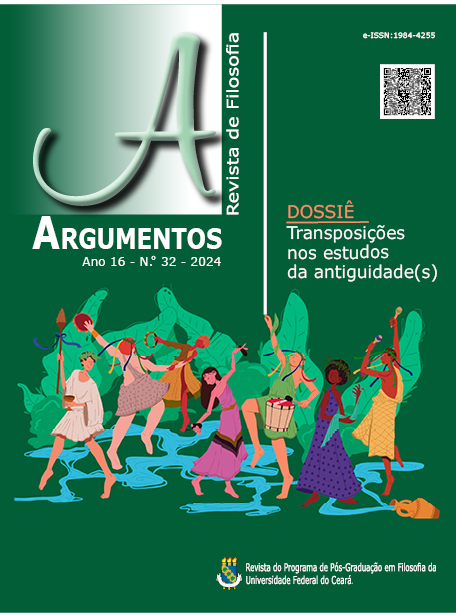Newton Bignotto and the phenomenology of coups d'état
Keywords:
Coup d'État. Storytelling. Phenomenology. Event.Abstract
Review of the work Golpe de Estado: história de um conceito, by Newton Bignotto.
References
ARENDT, H. A condição humana. Tradução de Roberto Raposo, revisão de Adriano Correia. 13. ed. Rio de Janeiro: Forense universitária, 2018.
BIGNOTTO, N. As aventuras da virtude: as ideias republicanas na França do século XVII. São Paulo: Companhia das Letras, 2010.
BIGNOTTO, N. Golpe de Estado: história de uma ideia. Rio de Janeiro: Bazar do Tempo, 2021.
BIGNOTTO, N. Maquiavel republicano. 2. ed. São Paulo: Loyola, 2005.
BIGNOTTO, N. O Brasil à procura da democracia: da proclamação da república ao século XXI (1889-2018). Rio de Janeiro: Bazar do Tempo, 2020a.
BIGNOTTO, N. Origens do republicanismo moderno. 2. ed. Niterói: Eduff, 2021b.
BIGNOTTO, N. O tirano e a cidade. São Paulo: Edições 70, 2020b.
BIGNOTTO, N. Republicanismo e realismo: um perfil de Francesco Guicciardini. Belo Horizonte: Editora UFMG, 2006.
MAQUIAVEL, N. O Príncipe. Edição bilíngue. Tradução de Diogo Pires Aurélio. São Paulo: Editora 34, 2017.
Downloads
Published
Issue
Section
License
Argumentos magazine is licensed under an International Creative Commons Attribution License.
The Magazine uses CC BY inclusion
1) The authors retain the copyright granted to the magazine or the right to initial publication, with the work regularly licensed under the Creative Commons Attribution, which allows the sharing of the work with acknowledgment of authorship and initial publication in this magazine.
2) The authors are authorized to contract additional applicable contracts, for non-exclusive distribution of the version of the work published in this journal (for example, publication in the institutional repository or as a chapter of the book), recognition of authorship and initial publication in this journal.
3) Authors are authorized and encourage to publish and distribute their work online (for example, in institutional repositories or on their personal pages) at any time before or during the editorial process, as they can generate productive changes, as well as increase the impact and reference of published work.




.jpg)










._._3.png)
1.jpg)
._._._.png)
